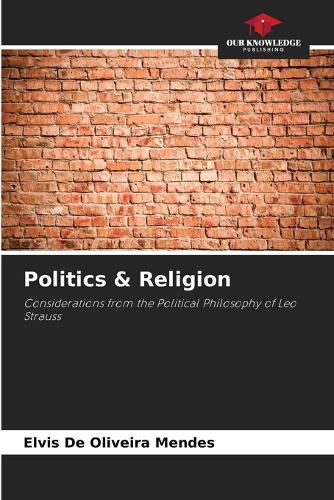Readings Newsletter
Become a Readings Member to make your shopping experience even easier.
Sign in or sign up for free!
You’re not far away from qualifying for FREE standard shipping within Australia
You’ve qualified for FREE standard shipping within Australia
The cart is loading…






The main aim of this article is to show how, in the view of the German-American political philosopher Leo Strauss, religion plays a preponderant political role in maintaining the social establishment and civil order. It is thus a question of seeing how, for this philosopher, religion, as the holder of a moral horizon legitimised by the idea of revelation, is an indispensable element in political life, since, in Strauss's view, in order to guarantee the functionality of any political regime, it is necessary, to a large extent, for individuals to respect the norms and values that make life in society possible, believing in their absolute or unconditional character, something that is only possible through religious discourse. Based on the observation of these elements, the author analyses Strauss' strong criticism of the modern Western political project propagated by the Enlightenment, which, in the name of reason, sought to reduce religion to the status of superstition, putting every human moral enterprise at risk. In this way, the author tries to rethink the place and usefulness of religion in the politics of contemporary societies.
$9.00 standard shipping within Australia
FREE standard shipping within Australia for orders over $100.00
Express & International shipping calculated at checkout
The main aim of this article is to show how, in the view of the German-American political philosopher Leo Strauss, religion plays a preponderant political role in maintaining the social establishment and civil order. It is thus a question of seeing how, for this philosopher, religion, as the holder of a moral horizon legitimised by the idea of revelation, is an indispensable element in political life, since, in Strauss's view, in order to guarantee the functionality of any political regime, it is necessary, to a large extent, for individuals to respect the norms and values that make life in society possible, believing in their absolute or unconditional character, something that is only possible through religious discourse. Based on the observation of these elements, the author analyses Strauss' strong criticism of the modern Western political project propagated by the Enlightenment, which, in the name of reason, sought to reduce religion to the status of superstition, putting every human moral enterprise at risk. In this way, the author tries to rethink the place and usefulness of religion in the politics of contemporary societies.